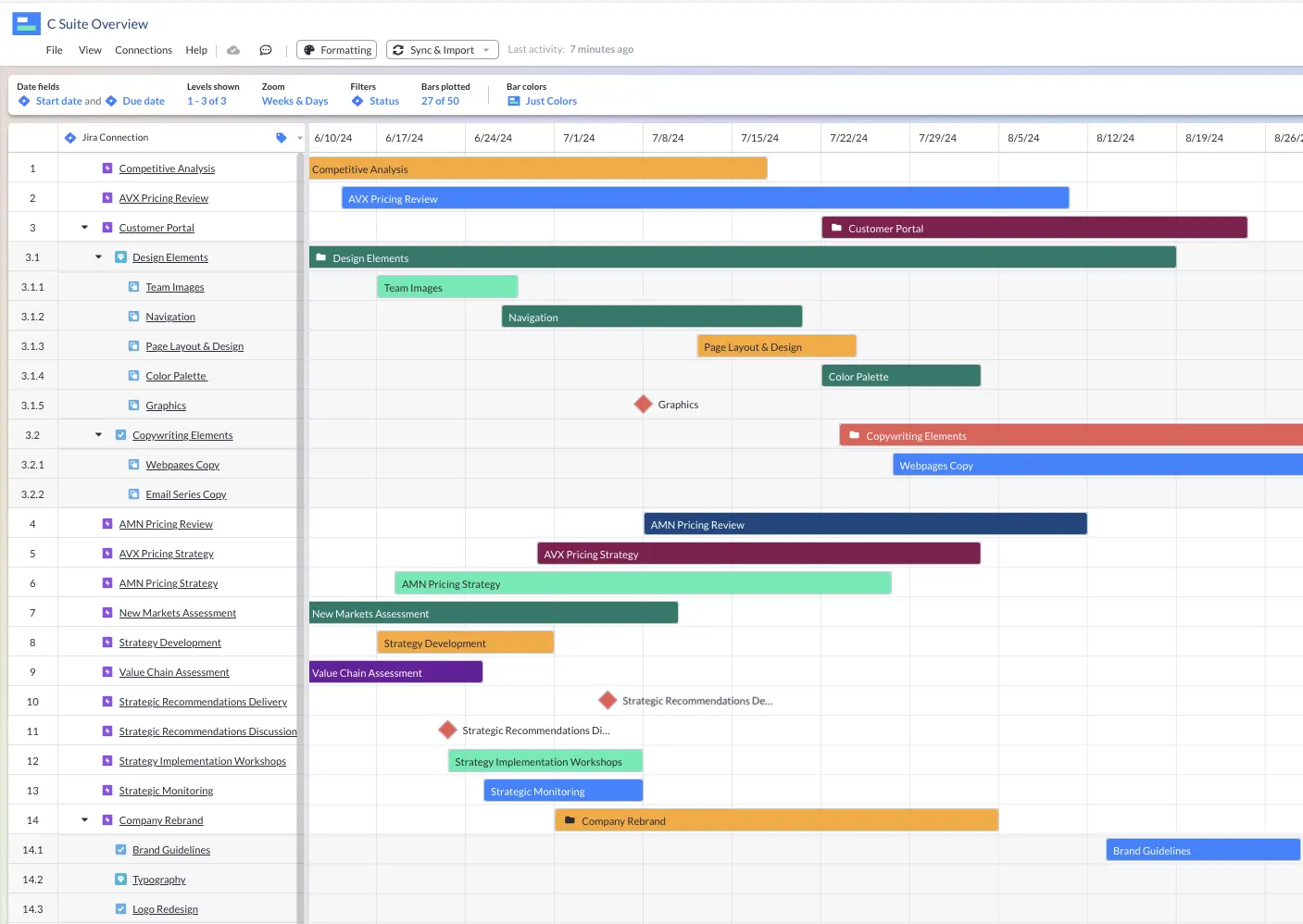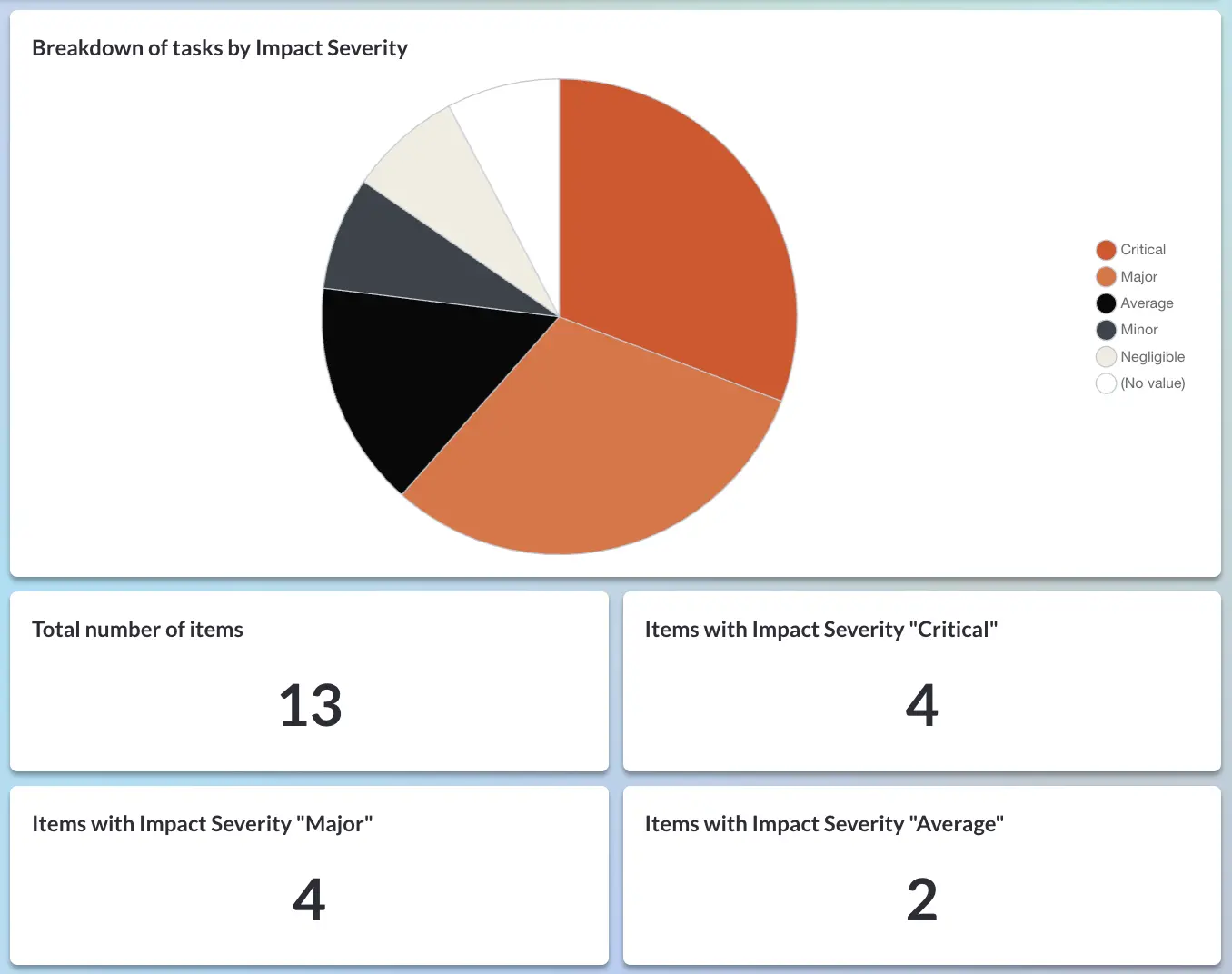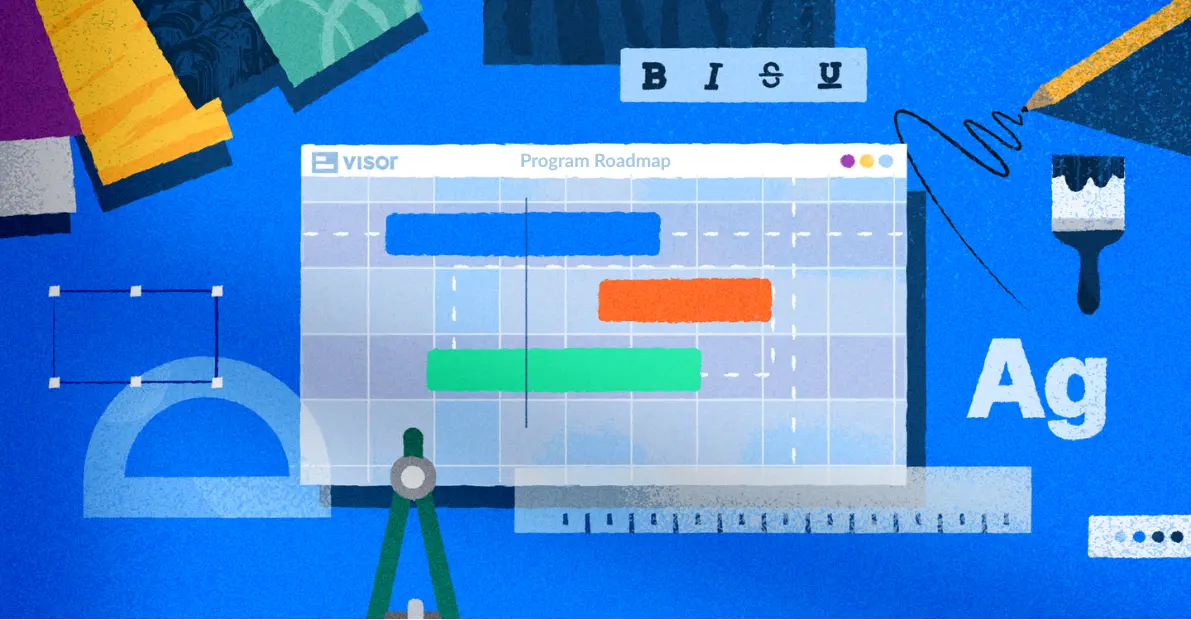
What is project manager job satisfaction in 2025?
Are project managers happy?
That’s the big question for uncovering the state of project manager job satisfaction.
Do you find yourself sitting with the dreaded “Sunday scaries” debating going to work tomorrow at all? Or maybe you love some parts of your job, but others… not so much. It can be so hard to tell if you’re in the wrong field or just working at the wrong job or with the wrong people.
Maybe you’re here because you’re a project manager who is trying to figure out if they’re in the right career. Maybe you’re considering becoming a project manager.
Based on our experience, it’s most likely that you’re somewhere in that messy middle: you didn’t set out to become a project manager, but you’re finding yourself taking on more and more of those tasks, and now you’re wondering if this is something you should aim to do on purpose.
It’s surprisingly common to find yourself in project management by surprise! That doesn’t mean you can’t take control and make the role into a career you love.
We know what we’re talking about because we’re Visor, a project portfolio management tool that gets your data in one place – even when your people aren’t. If you’re looking for better, less stressful ways to manage your projects, try out Visor, totally free.
Stats about Project Manager Job Satisfaction
According to data gathered by Glassdoor, project managers report a broad job satisfaction that’s on the high end of the middle, with most metrics ranking in the ~3.5 star region (out of five stars).
That means that job satisfaction, overall, is harder to measure as a broad industry heading, as different types of project management can be wonderful or awful, depending on the company, the projects at hand, and a range of other, smaller factors. Most of Glassdoor’s standout quotes about being a PM – both positive and negative – refer to the specific workplace rather than the field as a whole.
Data from CareerExplorer backs this up, with many PMs reporting that, while they like their salary and career trajectory, the work they do isn’t as personally meaningful as they might prefer, a known major cause of burnout and career dissatisfaction.
Organizational maturity plays a massive role in this, as projects in organizations with high maturity (that’s good, firm processes, tools, and methodologies to get work done) were successful almost twice as often as projects in low maturity orgs.
47% of projects report going over time or budget, which leads to unhappy customers and stakeholders. All this rolls down to PMs – one in five project managers have considered leaving their job at some point.
On the other hand, this is a booming industry with a lot of growth potential. Predictions state there will be a 6% growth in the title in the next decade, much faster than the average pace.
The rising place of project managers in the business world comes with respect, too. Roughly half of workplaces report that they place a “high value” on project management.
But with more value comes more competition. Project managers report spending a long time looking for the right role – as much as 11 months in some anecdotal cases. That doesn’t mean the field is impossible to work in, but it does mean that, with more certifications than ever, it’s a very competitive space that many people are interested in joining.
Steps to Improve Job Satisfaction as a Project Manager
If you’re finding that these statistics don’t quite resonate with how you’re feeling, you may want to take some steps to improve your personal sense of psychological wellbeing at work.
You can do that through a few different channels that work together to help give you a more holistic sense of security and satisfaction in your job.
Work on the world around you
Maybe you love your job, but the energy on your team isn’t what you want. All is not lost! You may be able to build up a better team culture by developing stronger interpersonal relationships with your coworkers, promoting open communication and feedback, and making your team feel seen and supported. That can be tricky when a full quarter of project managers said that they didn’t have the ability to communicate with their team in a way that helped them achieve their goals.
Only 23% of companies have project management software, yet 77% of high-performing projects use it. Being forced to make do with spreadsheets and emails is a huge source of stress for many PMs. but it’s a stress you can eliminate by seeking out the right tools for the job – and when they’re free to use, there’s not nearly as much approval required.
Feeling stressed? Maybe you need a stronger tech stack to lighten the load. Try Visor, a free project management app made specifically to support PMs.
You can also apply methods used in project management to diagnose the causes of problems in projects (such as the five whys or root cause analysis), to make issues in your projects less opaque, easier to address, and therein less a cause of uncertainty, stress, and anxiety for you.
If you’re not working effectively, how can you expect to have high job satisfaction?
They aren’t the end-all-be-all, but great tools really do improve your joy and stave off unhappiness in the workplace. Specifically, focus on any tool that will save you time and effort. Tools that streamline workflows, reduce manual tasks, and offer clear visibility into project progress allow managers to focus on higher-level decision-making and strategic planning.
Visor’s Gantt View

When tools like project management software, task tracking systems, and collaboration platforms are easy to use and fit seamlessly into the team’s processes, they reduce frustration and save time. This efficiency makes the day-to-day workload more manageable and enjoyable, which can lead to a more positive outlook on the job overall. Bonus points if you can roll all of those tools into one seamless PM-empowering app like Visor.
Tools that offer increased project visibility empower project managers to be more proactive and confident in their roles. With access to real-time data, automation, and powerful reporting features like dashboards, they can make informed decisions and anticipate potential future issues before they get worse. This not only enhances their performance but also builds a sense of accomplishment and control over the project’s direction – a crucial part of job satisfaction.
Visor’s Dashboard View, zoomed in

If you have control over the projects you take on at work, you may be able to pivot to work that has more personal meaning for you. If you come to life with fast-paced, energetic effort, taking on lots of smaller projects with short deadlines might give you more satisfaction than a slow project that won’t bear fruit for a long time.
Alternatively, you may want to select work that has the impact you want to see. Hate the spotlight? Opt for projects that are more internal-facing. Need to feel seen to feel satisfied? Client or customer-facing work should be your top choice.
Even when the work itself is very similar, adjusting your choices to support your goals may make all the difference.
Work on professional development
Want to advance in your PM career? Continuing education and professional development are essential for project managers to stay competitive and effective in their roles. Project management is a dynamic field that evolves with emerging methodologies, tools, and industry trends.
By engaging in ongoing learning, project managers can refine their skills, adopt new practices like Agile or Lean frameworks, and stay ahead of technological advancements, such as AI-driven project tools. Beyond technical expertise, professional development opportunities often focus on soft skills like leadership, communication, and stakeholder management, all of which are critical to leading successful teams and delivering impactful projects.
If you’re not a PM yet, but you want to become one, investing in professional development demonstrates a commitment to the field and helps build a strong foundation. Certifications like PMP (Project Management Professional) or CAPM (Certified Associate in Project Management) not only validate knowledge but also boost credibility with potential employers.
Workshops, online courses, and mentorship programs offer opportunities to gain hands-on experience and learn from seasoned professionals. Dedication to continuous learning not only enhances personal growth but also sets aspiring project managers on a clear path to achieving their career goals with confidence and competence.
But you don’t need a fancy course or even to spend any money to work on your professional development. Many PM influencers operate for free, sharing their knowledge with everyone without asking much in return.
YouTube is another phenomenal resource for learning more about project management and becoming a star in the space.
Work on your internal world
Reflect on what matters to you. Are you mainly working your 9-5 to support your 5-9? Does it matter more to you what you do every day, or what the final impact is? What are your values and do they seem to align with your career goals?
Reassessing your goals can also be hugely helpful in reframing your outlook on your job. Maybe your goal is to reach a certain level of seniority at your company. Maybe it’s to start your own business. Those are two different goals with very different paths to success. You want to make sure your vision aligns with your actions.
Actively cultivating a growth mindset has been proven to improve your mental wellbeing at work and beyond it. Embrace challenges by viewing them as opportunities to grow, and treat setbacks as learning opportunities.
Look outside of your job
Seeking out ways to develop and grow your skills outside of the office is a surprisingly effective way to improve your relationship with work. Seek out opportunities to learn new things, gain new certifications, or take classes that will help you do better at the things that matter to you.
If you’ve set lofty career goals, you may find more support in industry spaces outside of your business. Look into mentoring programs and social spaces for people with your job title… or the job title you want to have.
Are project managers happy?
Yes! Largely, project managers report satisfaction and pride in their jobs, and a desire to pursue their careers further.
Like a lot of careers, some are very satisfied with their jobs, while others aren’t. It’s not a clear-cut choice of career based on the industry alone.
What can you do to make sure you’re feeling satisfied and like your career is progressing the way you’d prefer? It starts with the self.
Are you a satisfied project manager?
Regardless of if you’re making the switch into project management or if you’re trying to build up your own psychological wellbeing at work, we hope that this advice helps ground you and gives you a better sense of what you want from your 9-5.
Managing your next project doesn’t have to be stressful. Visor can help you get all your data in one place, no matter what apps your teams use, and present your progress to stakeholders in beautiful, custom views that always stay up to date.
Visor also offers a ton of Gantt templates for industries like construction, software development, and even for simple project plans. In addition, Visor has templates for agile teams needing to create roadmap or share a product backlog.





